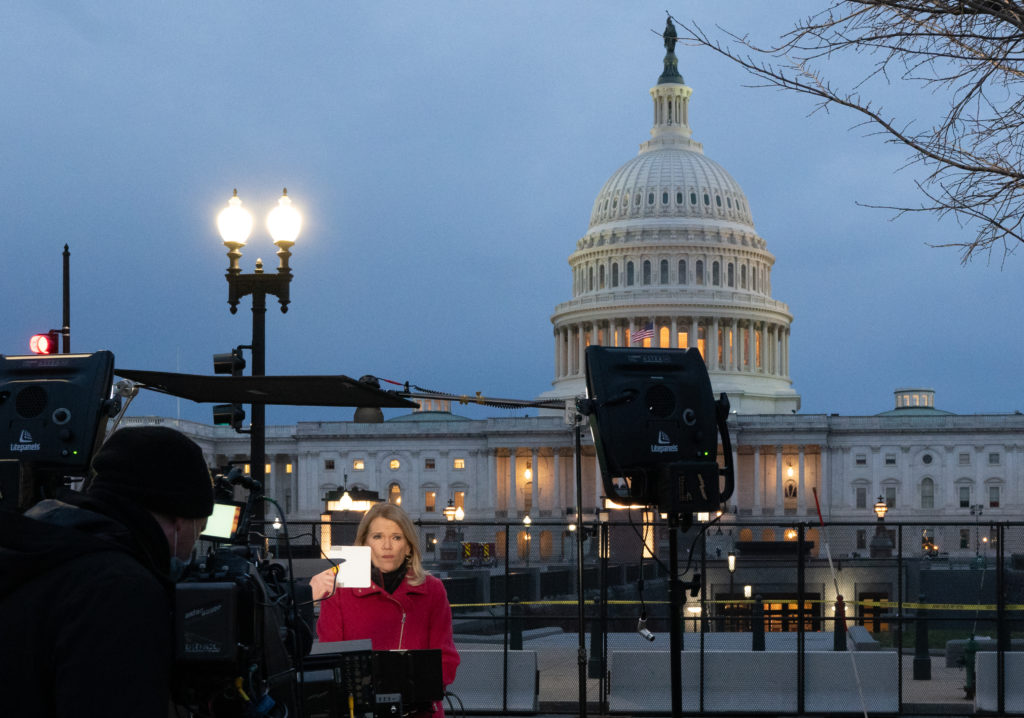In the days and weeks since the Jan. 6 attack on the U.S. Capitol building and its police officers, it’s becoming clearer just how local this story is, even as the national media outlets have moved to the inauguration and the first days of the Joseph Biden presidency.
The people who participated in the insurrection were from our communities. The members of the branch of government they attacked come from and represent our communities. They were called to act by a president elected by large margins in our communities.
I couldn’t help but think of the hand-wringing that took place after Donald Trump (surprise!) was elected in 2016. The national media and the pollsters they relied on were distraught that they missed the signs of Trump’s popularity in large parts of the country. National media outlets vowed not to be caught again.

We can’t be caught either.
Some of our readers, or at the very least, some of our community members participated in the rally and then charged the capitol. Some simply went to Washington, convinced that the election was stolen. Their anger and disappointment didn’t abate with Biden’s inauguration.
It is our responsibility to report on and to explore the distrust in government that we saw, the white supremacy that we saw, the racism that we saw, the hatred that we saw, including the hatred toward us.
It is far too easy to allow our readers to distinguish between the elite national media organisations and the journalism that we do. But, in fact, we aren’t different. The vast majority of national media reporters got into the business for the same reason we did. They aren’t motivated by politics or agenda either.
As the country moves to heal and reckon with the largest breach on the U.S. capitol since 1814, we need to host the conversation that our communities need to have.
So what would that look like? It’s in-depth interviews with people who feel marginalized by the media. It’s talking to law enforcement officers. It’s talking to the teachers in our communities. It’s talking to people who have been hurt by racism. It’s putting all of that together in stories that seek to understand and not expose. But we shouldn’t shy away from exposing wrongdoing and hate either.
Look, I get it. This isn’t going to be easy. I spent Inauguration Day with a family member whose political beliefs are different from mine, whose framing of what happened on Jan. 6 is different from mine, whose finger points in a different direction than mine. Because we love each other, because neither of us is interested in fighting about politics, we spent the day in separate corners of the house for the most part. I felt it was important for my Black children to watch the swearing in of the nation’s first Black vice president who also is the first woman to hold that office. But I did that alone with my children.
I know I’m asking you to start a conversation that I didn’t want to have that day, to have it with members of your community who are like family members to you, too. The transfer of power did not disburse the sentiment that led to the Jan. 6 insurrection.
We have to have these conversations if we are going to move forward as a country, and as community journalists, we have a particular responsibility to start them. Let’s not hand the story over to people who don’t really know our communities. Let’s lead the way.
A version of this story first appeared in Publisher’s Auxiliary, the only national publication serving America’s community newspapers. It is published by the National Newspaper Association. GJR is partnering with Pub Aux to re-print Jackie Spinner’s monthly “Local Matters” column on our website. Spinner is the editor of Gateway Journalism Review. Follow her on Twitter @jackiespinner.
